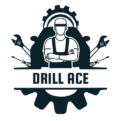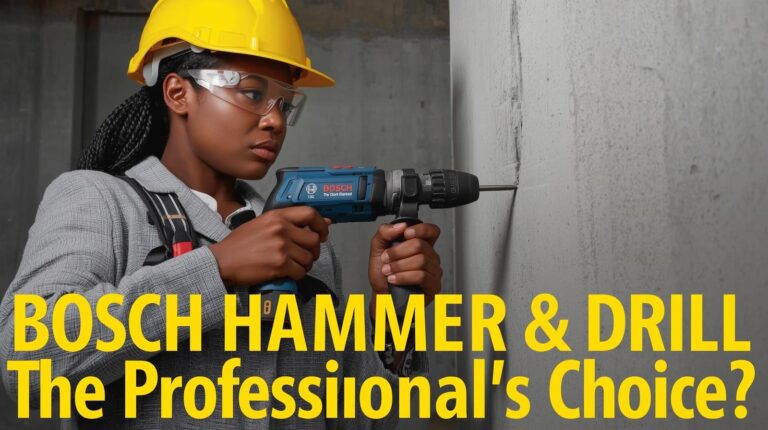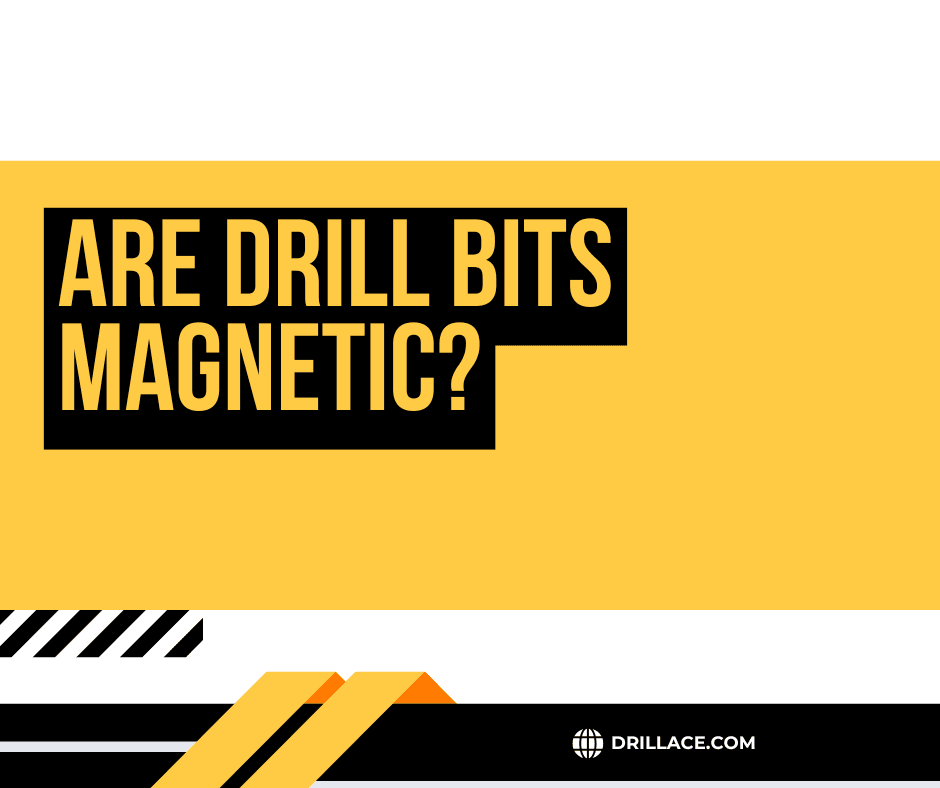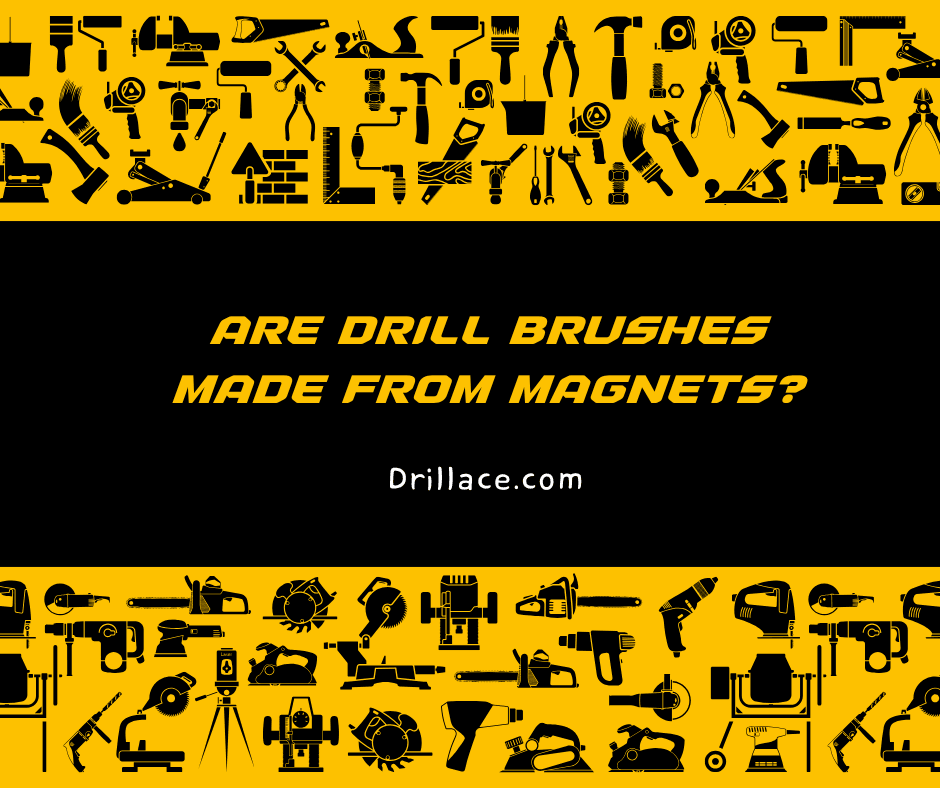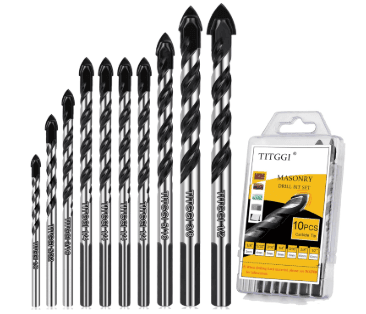When discussing power tools that deliver reliability, strength, and consistent drilling performance, Bosch stands out immediately. Many professionals and beginners consider Bosch hammer drills among the most dependable options for demanding tasks such as concrete drilling, heavy-duty fastening, and jobsite construction work.
Short answer Bosch Hammer Drill Review: Bosch hammer drills are known for excellent power output, smooth drilling efficiency, long-term durability, and comfort-focused design, making them a strong choice for both DIY workers and tradespeople.
This in-depth review walks through build quality, drilling performance, usability, long-term durability, torque handling, and value for money. The goal is to help you understand how Bosch hammer drills truly perform and whether they are right for your work needs. Throughout this article, different Bosch hammer drill models will be referenced so you can compare features and select the right fit for your drilling tasks.
What Makes Bosch Hammer Drills Stand Out?
Bosch tools have built a long-standing reputation for consistent engineering and worksite reliability. Their hammer drills typically combine torque strength with speed variability, allowing the user to shift between drilling, driving screws, and hammer drilling through concrete without strain. This adaptability makes them a strong multi-purpose tool for construction, woodworking, mechanical work, and home renovations.
The hammer mechanism in Bosch drills generates percussive impacts while rotating the drill bit. This action breaks through dense stone, brick, and concrete more efficiently than a normal drill. Although many brands offer this feature, Bosch models usually stand out due to smoother vibration control, optimized airflow to reduce motor heat, and high RPM power output that maintains drilling strength even under load.
Over time, Bosch hammer drills prove resistant to motor fatigue, meaning long working sessions feel stable and controlled rather than weak and overheated. This is crucial for professionals drilling multiple anchor holes or long rebar channels during construction projects. Even homeowners benefit because having a drill that never hesitates means projects finish faster and require less physical effort.
Build Quality and Durability: Designed for Long Work Cycles
Bosch hammer drills generally feature reinforced housings and high-grade metal gearing. This results in better mechanical endurance, especially during repeated hammer impacts. Most Bosch hammer drills can run for extended sessions without noticeable motor drop, and heat dissipation tends to be more efficient than in lighter budget drills.
Many models include rubber-lined grips that reduce hand strain during vibration. This ergonomic touch helps maintain control even when the drill bites into tough material. Weight distribution is balanced well, allowing for forward push without excessive wrist fatigue. Users notice that Bosch hammer drills feel solid, like a tool meant to last years, not months.
Examples of popular Bosch hammer drill models include:
Bosch 11255VSR SDS-Plus Bulldog Xtreme Rotary Hammer – a widely preferred concrete drilling option, known for high durability, suitable for pro jobsite use.
Bosch GBH18V-26N 18V EC Brushless SDS Plus Rotary Hammer – cordless, powerful, ideal for mobile work and outdoor drilling without power outlets.
Bosch Bulldog Xtreme Max RH328VC – high vibration-control rating and strong impact energy for demanding concrete drilling.
Bosch GSB18V-490B12 Cordless Hammer Drill/Driver Kit – versatile for both home and professional use.
Each offers different power levels, but share Bosch’s structural stability and longevity. While you may not think about internal gearing when buying a drill, Bosch designs theirs for longevity, which means fewer replacements, breakdowns, and work delays.
Drilling Power and Performance in Real Work Conditions
The most impressive trait of Bosch hammer drills is their ability to maintain speed under pressure. When drilling into concrete or masonry, cheaper drills often bog down or stall. Bosch hammer drills tend to drive forward without struggle, particularly SDS-Plus models built for heavy impact cycles.
When switching between modes, the adjustment is usually smooth, so you can change from drilling wood to hammer drilling concrete without wasting time or losing bit alignment. Clutch control is consistent across models, meaning screws stop at depth rather than over-driving and stripping material. This alone makes Bosch drills helpful for cabinetry, framing, decking installation, fence building, and renovation work.
Concrete performance is enhanced by the hammering mechanism that delivers thousands of micro-impacts per minute. This keeps the bit cool and prevents slow grind-downs that wear out masonry bits too quickly. Even in steel or hardwood drilling, Bosch drills maintain torque and rotation speed that bites aggressively into the material.
In comparison with entry-level drills, Bosch units often finish holes faster with less vibration feedback. This means your body works less, and you complete more holes per battery charge or power session. Users often notice that Bosch drills feel more controlled during overhead drilling, where weight balance and grip control affect accuracy.
Comfort, Handling, and User Control
A hammer drill is useless if it causes hand pain or fatigue during use. Bosch designs often include soft grip handles, lightweight balancing, and ergonomic shaping for prolonged operation. Even beginners report that Bosch tools feel stable, not shaky or unpredictable. This confidence matters when drilling overhead beams or breaking through tough surfaces where tool slip could lead to injury.
Trigger sensitivity is generally responsive, allowing precise control of rotation speed. This is especially important when drilling into tile or fragile ceramic surfaces, where high speed may cause cracks. The ability to start slowly then drive into hammer mode gradually gives more precision than tools that jump to high RPM instantly.
Cordless Bosch hammer drills are frequently praised for reduced vibration and smoother thrust control. Brushless motors also increase runtime per charge, meaning fewer interruptions to swap batteries. Corded models, meanwhile, deliver constant torque with no downtime, making them suitable for large-scale construction work.
Many models also feature anti-vibration systems, side handles for extra stability, and depth gauges for consistent drilling depth. These features help both professionals and DIY users achieve cleaner holes, straighter channels, and a reduced margin for error.
Power Source Options: Corded vs Cordless Bosch Hammer Drills
Choosing between corded and cordless Bosch hammer drills affects power output and mobility. Corded hammer drills provide unlimited runtime and are best for jobsite drilling where power access is available. They maintain consistent torque during long concrete drilling sessions and never lose output due to battery drain.
Cordless Bosch hammer drills offer freedom of movement and allow drilling in outdoor, rooftop, or remote areas where no power outlets exist. Modern Bosch batteries deliver strong output, especially on 18V models, and brushless motors increase drilling efficiency. They are well-suited for fence installation, home improvement, and quick mobile service work.
Cordless models like the Bosch GBH18V-20N Rotary Hammer and Bosch GSB18V-535CN offer strong performance without cords, making them versatile for professionals who frequently move between tasks and locations. Corded models such as the Bosch 11264EVS SDS-Plus remain preferred for high-demand concrete removal or structural drilling.
Neither option is universally better. Instead, the ideal choice depends on how long you drill per session, what materials you work with, and whether mobility matters more than constant power.
Bosch Hammer Drill Applications: Where They Perform Best
Bosch hammer drills handle a wide range of tasks, and their strength shines most in masonry drilling. They effortlessly push through poured concrete, brick, stone, cement board, and block. They are frequently used for anchor bolt installation, wall mounting, rebar channel drilling, and plumbing pass-through openings.
They also perform well in wood and metal work, though hammer mode is not required in those cases. Many contractors use Bosch hammer drills to build framing, assemble wall studs, fasten flooring, drive screws, and mount fixtures. The multi-mode switching helps a single tool function as both a standard drill and hammer drill, reducing the need to carry two separate tools.
Because Bosch designs focus on vibration control, drilling overhead beams, ceilings, and wall anchors becomes more manageable. Users experience less arm numbness and more drilling stability, allowing longer continuous work sessions without strain. Over time, this efficiency translates to faster job completion and better workmanship results.
Pros and Cons of Bosch Hammer Drills
Even though Bosch hammer drills offer strong performance, durability, and comfort, no tool is perfect. Understanding both strengths and limitations helps potential buyers make smarter decisions.
Pros
Bosch hammer drills excel in torque output and drilling power, making them ideal for concrete work, home building, and professional jobsite tasks. They are engineered for longevity with strong internal components, and many models provide smooth vibration management for comfortable drilling. Their accuracy, control, and steady performance under load give them a competitive advantage over lower-grade power tools.
Cons
The downside is that Bosch hammer drills sometimes cost more than mid-range alternatives, and heavy SDS-Plus models may be too powerful for light casual users. Some users may find cordless battery packs costly to replace after years of use. Beginners may also find certain models heavier than expected, especially when using them overhead for extended periods.
Buying Guide: How to Choose the Right Bosch Hammer Drill
Choosing a hammer drill should be based on how often you work, what materials you drill into, and the work environment. If you primarily drill concrete, SDS-Plus rotary hammer models deliver the most power. For all-purpose home use, a smaller hammer drill/driver may be more versatile. Consider whether you need variable speed modes, brushless motors, LED visibility lighting, or compact form factor.
Cordless buyers should check battery voltage, amp-hour rating, and runtime reviews. Professionals drilling reinforced concrete daily may prefer corded models for uninterrupted torque, while field installers and mobile workers benefit from the freedom of cordless drills. Ergonomics also matter — a comfortable grip and weight balance can greatly reduce fatigue during long drilling sessions.
Bosch hammer drills suit various skill levels, from hobbyists doing weekend renovations to construction professionals drilling hundreds of holes per week. Therefore, selecting the appropriate model ensures better performance without unnecessary cost or weight.
FAQs – Bosch Hammer Drill Review
Are Bosch hammer drills good for concrete?
Yes. They are specifically engineered to handle masonry and concrete with strong impact force, allowing the hammer mechanism to break through dense surfaces efficiently while maintaining stable drilling speed.
How long do Bosch hammer drills typically last?
With proper use and maintenance, Bosch hammer drills can last many years even under heavy workloads thanks to high-quality motor construction, durable gears, and heat-resistant internal parts.
Corded or cordless: which is better?
Corded Bosch hammer drills deliver consistent, uninterrupted power, making them ideal for long sessions or large construction tasks. Cordless models offer superior portability and convenience, perfect for outdoor work or locations without nearby outlets.
Do Bosch hammer drills work for beginners?
Absolutely. Bosch designs their tools with user-friendly features, ergonomic grips, and smooth controls, making them suitable for both first-time users and professionals who depend on reliable performance daily.
Can I use a hammer drill as a regular drill?
Yes. Bosch hammer drills often include multiple operating modes, allowing you to switch off the hammer function for standard drilling, screw-driving, or woodworking tasks, making the tool highly versatile for home or job-site use.
Final Thoughts
A Bosch hammer drill remains one of the most reliable tools for anyone working with masonry, construction, renovation, or heavy fastening tasks. The combination of power, control, and durability makes Bosch a trusted choice among professionals and DIY users alike.
Whether choosing a corded or cordless model, users can expect consistent drilling force, low vibration fatigue, and a long service lifespan. This review highlights the key strengths of Bosch hammer drills and helps guide both new and experienced tool users toward selecting a model that suits their workload and performance needs.
